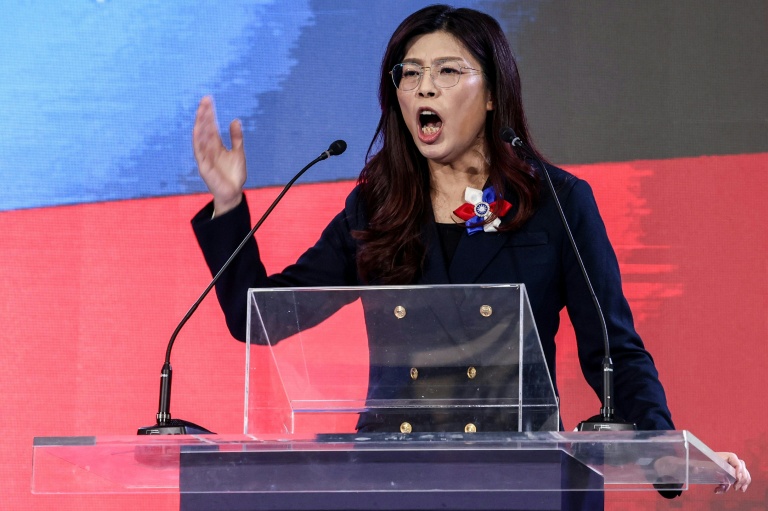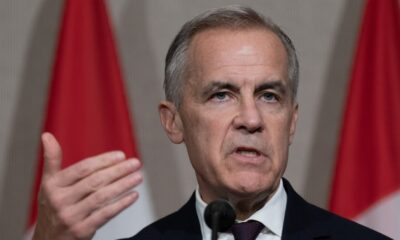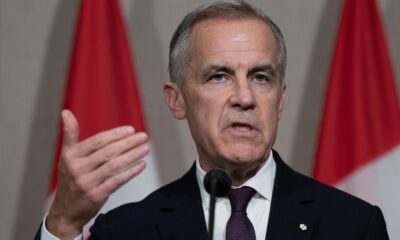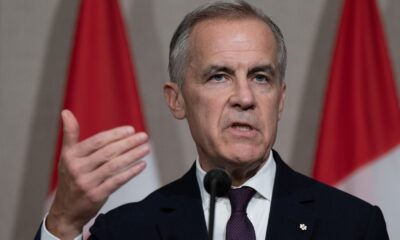World
Taiwan’s Opposition Leader Challenges Defence Budget Plans

Taiwan’s newly elected opposition leader, Cheng Li-wun, has expressed strong reservations about the government’s proposed increase in defence spending. Cheng, who heads the Kuomintang (KMT), stated that the island cannot afford to exceed a defence budget of three percent of its gross domestic product (GDP). This stance poses a significant challenge to the government’s plans, which aim to bolster military capabilities in light of rising tensions with China.
Cheng’s remarks come as Taiwan’s current president, Lai Ching-te of the Democratic Progressive Party (DPP), seeks to raise defence spending to over three percent of GDP next year, with a target of five percent by 2030. The proposed budget stands at NT$949.5 billion (approximately US$31 billion) for 2025. The push for increased military expenditure has been influenced by the United States, which has urged Taiwan to enhance its defence in response to perceived threats from China.
China claims sovereignty over Taiwan and has not ruled out the use of force to assert control over the island. In an interview with AFP, Cheng emphasized that while Taiwan is committed to its defence, the financial demands of such a budget are unsustainable. “The US’ expectations far exceed what we can reasonably afford,” she stated. Cheng added, “Taiwan isn’t an ATM — we really don’t have that much money,” advocating for a more reasonable defence budget that reflects the island’s economic capabilities.
The KMT, which controls the Taiwanese parliament with support from the Taiwan People’s Party, has previously indicated support for increased defence spending, but Cheng insists that a majority of her party members oppose the current trajectory, particularly regarding arms purchases from the United States. Outgoing KMT chair Eric Chu had previously endorsed the need for a higher defence budget but expressed concerns about acquiring U.S. military equipment to address Taiwan’s trade deficit.
Cheng further criticized Lai’s administration for potentially leading Taiwan toward conflict, highlighting the importance of dialogue over military escalation. “If cross-strait relations are peaceful and stable, we don’t need a pointless arms race,” she remarked. Her comments reflect a broader sentiment in Taiwan, where fears of military confrontation with China have led to intense national discourse about defence policy.
The political landscape between Taiwan and China has been contentious since the Chinese civil war more than 75 years ago, which saw the nationalist forces led by Chiang Kai-shek flee to Taiwan after being defeated by the Communist Party under Mao Zedong. The current status quo, according to Cheng, cannot remain unchanged indefinitely. She noted, “What we are working hard for now is to prevent it from escalating into war, but rather towards reconciliation and peace.”
Cheng, who began her political career in the DPP before switching to the KMT in 2005, is the first female candidate of the KMT to lead the party in this capacity. Following her election, she received a congratulatory message from Chinese President Xi Jinping, who called for both sides to “advance national reunification.” Cheng has indicated her willingness to engage in discussions with Xi to foster better relations.
As Taiwan prepares for upcoming elections in 2028, Cheng reiterated the urgency of her party’s position, stating that the KMT “cannot afford to lose again.” The KMT’s approach to defence spending will be closely watched as the island navigates its complex relationship with China while balancing domestic economic realities. The proposed defence budget, along with any increases, will require parliamentary approval before implementation, adding another layer of uncertainty to Taiwan’s military strategy.
-

 World4 months ago
World4 months agoScientists Unearth Ancient Antarctic Ice to Unlock Climate Secrets
-

 Entertainment4 months ago
Entertainment4 months agoTrump and McCormick to Announce $70 Billion Energy Investments
-

 Lifestyle4 months ago
Lifestyle4 months agoTransLink Launches Food Truck Program to Boost Revenue in Vancouver
-

 Science4 months ago
Science4 months agoFour Astronauts Return to Earth After International Space Station Mission
-

 Technology2 months ago
Technology2 months agoApple Notes Enhances Functionality with Markdown Support in macOS 26
-

 Top Stories3 weeks ago
Top Stories3 weeks agoUrgent Update: Fatal Crash on Highway 99 Claims Life of Pitt Meadows Man
-

 Sports4 months ago
Sports4 months agoSearch Underway for Missing Hunter Amid Hokkaido Bear Emergency
-

 Politics3 months ago
Politics3 months agoUkrainian Tennis Star Elina Svitolina Faces Death Threats Online
-

 Technology4 months ago
Technology4 months agoFrosthaven Launches Early Access on July 31, 2025
-

 Politics4 months ago
Politics4 months agoCarney Engages First Nations Leaders at Development Law Summit
-

 Entertainment4 months ago
Entertainment4 months agoCalgary Theatre Troupe Revives Magic at Winnipeg Fringe Festival
-

 Top Stories1 week ago
Top Stories1 week agoFamily Remembers Beverley Rowbotham 25 Years After Murder




















